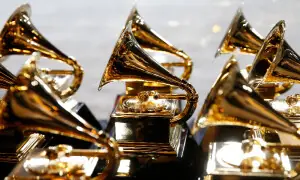Caffeine is more like an illegal drug
5 min read
If you asked people what the world’s most popular drug is, what would the most common answer be? Many people will say marijuana, or cannabis if they’re pretentious potheads. There will be some people that get closer by saying tobacco or alcohol.
Probably fewer than say weed, because when most of us hear the word drug we think of illegal drugs. However, none of these are correct. The right answer: caffeine. We don’t think of drinking coffee as doing drugs, but that’s what it is. So read on to find out more about the only recreational drug.
It Makes You Feel Good
The main reason that people take drugs is because they make the user feel good. Drugs can make us feel so good that they’re dangerous. Some people are willing to take them despite the side effects and risks. The lows and highs for coffee aren’t quite as extreme as heroin, but as you’ll see they do exist. Let’s start with the high.
Caffeine consumption stimulates the release of the chemical dopamine, which leads to euphoria. Other drugs that rely on dopamine include cocaine and ecstasy. Recent research has shown that caffeine also acts on the same neurotransmitters that marijuana does. So, that buzz you feel when you have your first cup of joe in the morning is caused by chemicals being released in your brain’s reward system. In addition to the rise in productivity, this is another one of the positive effects of caffeine consumption.
It Can Have Side Effects
Like most things in life, caffeine can have some nasty side effects, especially if consumed to excess. Most of us know that it can cause insomnia, nervousness, and anxiety. However, there are other negative possibilities as well. These are much more rare, but they do occur. In some people, caffeine may cause stomach problems, nausea, vomiting, headaches, chest pains, and increased heart rate.
There are also some people who should take extra caution. It can sometimes make anxiety disorders or bipolar disorder worse. It’s also probably good to avoid it if you are pregnant or if you are a child. It also can make certain problems worse, like glaucoma, epilepsy, and high blood pressure. If you have something like that that impacts your life, make sure you talk to your doctor, or more realistically, look it up online. Again, these effects are rare but it’s good to at least keep them in mind.
It Can Cause Withdrawal
When someone tries to quit taking a hard drug, let’s say heroin, there are often withdrawal symptoms. Part of the reason it’s hard to quit is because the drug makes us feel good, but another reason is because stopping feels so bad. This is the case with caffeine for many people.
Attempting to stop consuming caffeine can lead to withdrawal symptoms. Caffeine use releases adrenaline, which causes an energy boost. But this energy boost wears out eventually, and many people decide that means it’s time for more caffeine. But over consumption can wear down your adrenal gland, making you dependent on the adrenaline boost provided by caffeine. This leads to withdrawal symptoms ranging from headache to constipation to depression. Luckily, these are usually milder than the withdrawals experienced by heroin addicts and will usually go away within a week or so. Whew!
It’s a Social Drug
Sure, a lot of times people drink caffeinated drinks on their own. In fact, that’s probably the most common way to consume it. But there is also a unique social aspect to coffee drinking. The primary locations of these social occasions are coffee shops. In the coffee shop owner’s ideal world, people would come in, purchase something expensive, and then leave. But that is not how people act for the most part.
People treat coffee shops as meeting places. They spend hours there studying, chatting, working on business presentations, or “writing” (AKA wasting time online). They are unique places, like a bar but much more relaxed. You can talk to other people, but it’s not expected. And there are probably more people getting actual work done than at the nightclub. The fact that it helps improve productivity is one of the main reasons that caffeine is the world’s most accepted drug, and also one of the reasons that people choose to do their work at coffee shops.
It Can Kill You
As we said earlier, caffeine overdose usually only leads to mildly unpleasant symptoms. Unfortunately, this isn’t always the case. In extremely rare cases, it can actually help kill you. Again, this can only happen if large amounts are consumed in a small amount of time. Back in April, a teen in South Carolina died after drinking a McDonald’s latte, a large Mountain Dew, and an energy drink in under 2 hours.
He suffered from a caffeine induced cardiac arrhythmia. Based on estimates, he may have consumed about 470 mg of caffeine, over the daily recommended limit, in under two hours. The energy drink is particularly to blame, as it contains tons of caffeine and sugar. The American Association of Pediatrics has warned against kids and teenagers consuming energy drinks, and they say no one can ensure they are safe. Soda’s not good for you by any means, but energy drinks seem to be even more dangerous.

























Comments are closed on this story.